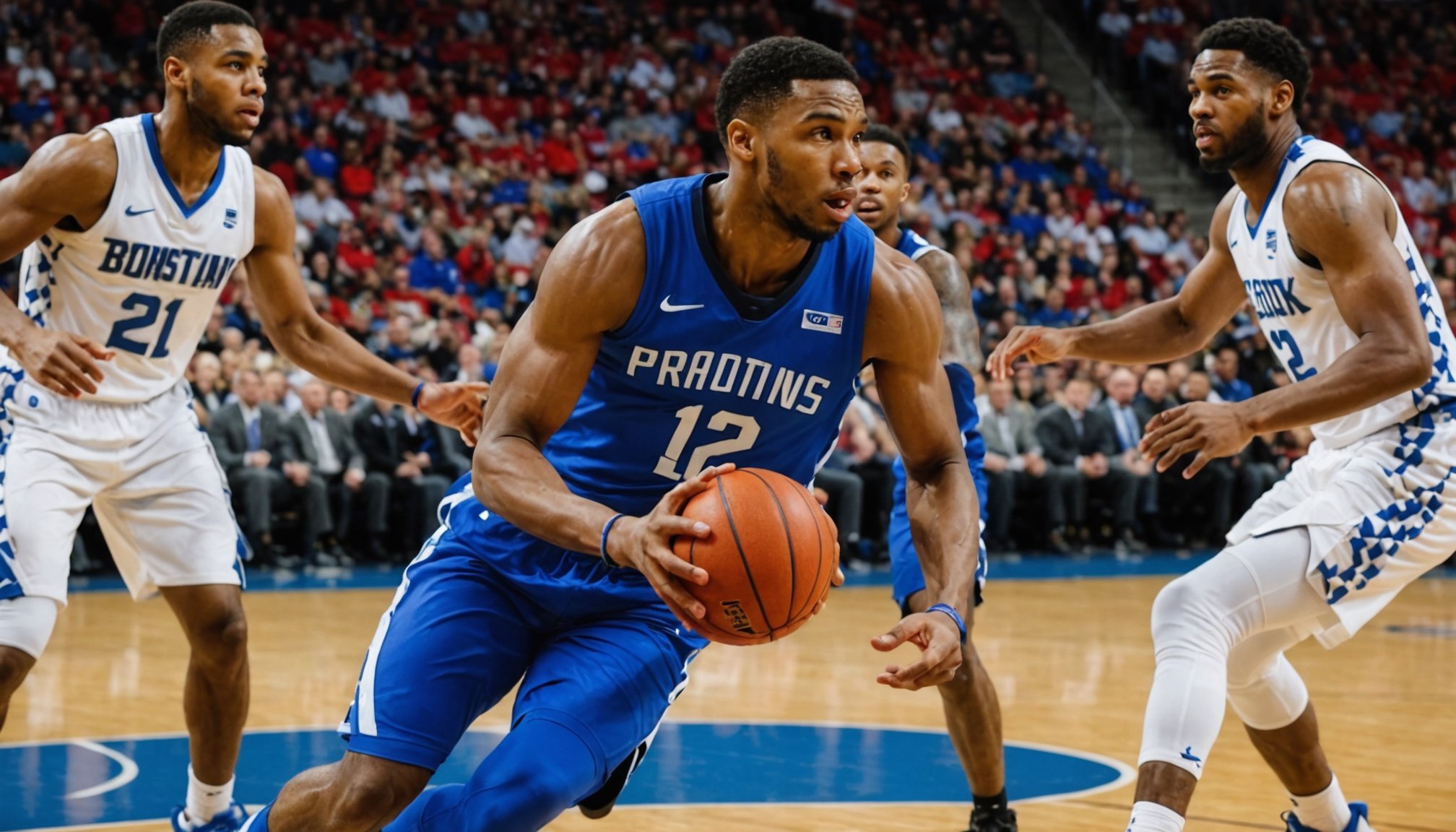Conquering Pre-Game Anxiety: Top Strategies for UK Basketball Players
Understanding Pre-Game Anxiety
Pre-game anxiety is a common phenomenon among athletes, including basketball players. It can manifest in various forms, such as cognitive anxiety (worries and fears), somatic anxiety (physical symptoms like a rapid heart rate), and self-confidence issues. Understanding the root causes and types of anxiety is crucial for developing effective strategies to manage it.
Types of Anxiety
- Cognitive Anxiety: This involves the mental aspects of anxiety, such as worries about performance, fear of failure, and negative self-talk. For example, a player might worry about missing crucial shots or making mistakes that could cost the team the game.
- Somatic Anxiety: This refers to the physical symptoms associated with anxiety, such as increased heart rate, sweating, and muscle tension. A player might feel their heart racing or their hands shaking before a big match.
- Self-Confidence Issues: This is about the athlete’s belief in their abilities. Low self-confidence can exacerbate anxiety, making it harder for players to perform at their best.
Mental Preparation
Mental preparation is a cornerstone in managing pre-game anxiety. Here are some strategies that UK basketball players can use:
Have you seen this : Top Strategies for Fostering Team Chemistry in UK Basketball: Unlocking Success on the Court
Positive Self-Talk
Positive self-talk involves using affirmations to boost confidence and reduce negative thoughts. For instance, a player could repeat phrases like “I am well-prepared,” “I can handle this,” or “I trust my skills.”
- "I focus on the process, not the outcome."
- "I trust my training and my team."
- "I am ready for this challenge."
Visualization
Visualization is a powerful tool that involves imagining oneself performing well in the game. This technique can help reduce anxiety by creating a positive mental image of success.
In parallel : Essential Warm-Up Exercises to Safeguard UK Basketball Players from Hamstring Injuries
- Imagine yourself making crucial shots and playing a flawless game.
- Visualize the crowd cheering and your teammates supporting you.
- See yourself handling pressure situations with ease.
Breathing Techniques
Deep breathing exercises can help calm the nervous system and reduce somatic anxiety.
- Take slow, deep breaths in through your nose and out through your mouth.
- Focus on the sensation of the breath moving in and out of your body.
- Practice breathing exercises regularly to make them a habit.
Training and Physical Preparation
Physical preparation is equally important as mental preparation. Here’s how training can help:
Consistent Training
Consistent and rigorous training can build confidence and reduce anxiety by making the player feel more prepared.
| Aspect of Training | How it Helps |
|---|---|
| Skill Development | Improves technical skills, reducing worries about performance. |
| Physical Conditioning | Enhances physical fitness, reducing somatic anxiety related to fatigue or injury. |
| Game Scenarios | Simulates game situations, helping players prepare for pressure moments. |
Pre-Game Routine
Having a consistent pre-game routine can provide a sense of comfort and control, helping to reduce anxiety.
- Arrive at the venue early to get familiar with the environment.
- Follow a specific warm-up routine that includes both physical and mental preparation.
- Use the same pre-game rituals, such as putting on your uniform in a specific order or listening to a particular playlist.
Team and Coach Support
The support of the team and coach can play a significant role in managing pre-game anxiety.
Team Dynamics
A supportive team environment can boost confidence and reduce feelings of isolation.
- Encourage open communication among teammates to share concerns and support each other.
- Foster a positive team culture that emphasizes teamwork and mutual support.
- Celebrate each other's successes and learn from failures together.
Coach Guidance
Coaches can provide valuable guidance and strategies to help players manage anxiety.
- Coaches can offer personalized advice based on the player's specific needs and anxieties.
- They can help players develop a pre-game plan that includes mental and physical preparation.
- Coaches can also provide reassurance and confidence boosts through positive feedback.
Real-Life Examples and Anecdotes
LeBron James’ Mental Preparation
LeBron James, one of the most successful basketball players, is known for his rigorous mental preparation. He often talks about the importance of visualization and positive self-talk in his pre-game routine. For example, he might visualize himself making game-winning shots or leading his team to victory.
The Role of Breathing Techniques
Breathing techniques have been widely adopted by athletes to manage anxiety. For instance, NBA player Steph Curry has talked about using deep breathing exercises to calm his nerves before games. He emphasizes the importance of staying present and focused through controlled breathing.
Practical Insights and Actionable Advice
Here are some practical tips and advice for UK basketball players to conquer pre-game anxiety:
Pre-Competition Checklist
Before the game, go through a checklist to ensure you are mentally and physically prepared:
- Review your game plan and strategies.
- Visualize your success.
- Use positive self-talk.
- Perform your pre-game routine.
- Stay hydrated and energized.
Post-Competitive Reflection
After the game, take time to reflect on your performance. This can help in identifying areas for improvement and managing anxiety for future games.
- Analyze what went well and what didn’t.
- Identify moments where anxiety affected your performance.
- Develop strategies to improve based on your reflections.
Managing pre-game anxiety is a multifaceted process that involves mental preparation, physical training, and support from the team and coach. By understanding the types of anxiety, using positive self-talk, visualization, and breathing techniques, and maintaining a consistent pre-game routine, UK basketball players can significantly reduce their anxiety levels and enhance their performance.
As Henry Mintzberg, a renowned scholar, might suggest, it’s about finding balance and putting things in their right place. For basketball players, this means balancing mental and physical preparation to achieve peak performance.
"Surely, it must be obvious by now that we will make no headway on our goals until we restore balance in our approaches."[1]
By adopting these strategies, UK basketball players can conquer pre-game anxiety and perform at their best, both on and off the court.






